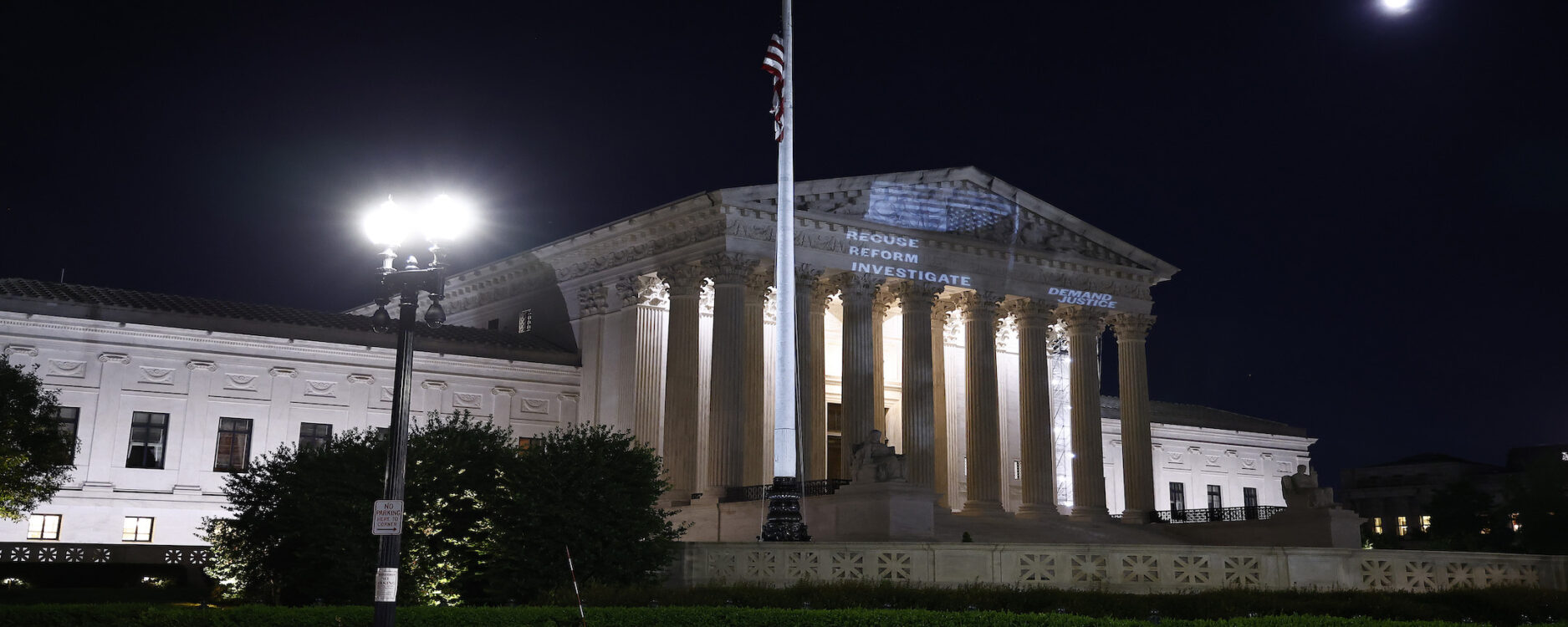In America, we don’t want kings or queens — not when it comes to our president or our Supreme Court. But despite the importance of a fair and balanced judiciary, for far too long the Supreme Court has been allowed to act as if they wear crowns instead of robes. Evidence of corruption without oversight, unchecked lifetime appointments without accountability, and dangerous decisions that consolidate policy-making power in the courts have become the norm.
Every child learns about the three branches of government in grade school: legislative, executive, and judicial. They are supposed to check and balance one another to protect our freedoms and serve the public.
The Supreme Court used to be required to work much harder than they currently do — including being required to hear certain cases and even requiring justices to serve in lower courts. Today, the Court hears fewer cases than ever, while overwhelmingly using its power to push an extreme agenda that most Americans don’t support.
The Constitution requires a Supreme Court — but that Court must serve the people, not their own partisan interests. It’s clear that, even as we fight to ensure MAGA influences do not further damage our courts during the immediate crisis facing our democracy, major reforms are urgently needed: strong ethics rules, term limits, restructuring of the Supreme Court and lower courts, and curbing abuses like judge-shopping and unconstitutional power grabs.
No single solution will fix everything overnight. But doing nothing is not an option. We must take bold, comprehensive action to restore integrity, accountability, and balance to the judicial system.
Four Steps To Reform Our Courts:
While the Supreme Court is the most high-profile part of the judicial branch, the vast majority of cases in the United States are heard at the district and circuit court levels. These judges have a significant impact on everyday Americans, which is why it is imperative that they be independent and fair-minded, and that they reflect the diversity of our nation.
We must defend our courts from the kinds of ideologues that Donald Trump and the far-right want to install on the bench – these are not the kinds of judges who will put people over politics, or who will rule in the best interests of average Americans.
The Supreme Court is the least accountable part of the federal government, with no binding code of ethics. Faced with multiple ethics crises and plummeting trust from the American public, the Court has made clear it is unable or unwilling to meaningfully police itself.
In fact, just last year, when the Court released what it claimed was a new code of ethics designed to restore public trust in its members – they made following those rules optional.
Congress must institute a binding code of ethics so that Americans can trust the justices are ruling based on the law, not politics and personal interest.
Presidents that the American people elect for one term shouldn’t be able to appoint the same – or even more – Supreme Court justices than presidents they elect for two terms. Yet that is exactly what our current system allows to happen.
Instead of having justices serve unchecked for life, we should create term limits that ensure justices serve a uniform number of years. Term limits would give each president the opportunity to appoint the same number of Supreme Court justices each term, reducing partisan gamesmanship around each confirmation and making the Court more democratically representative.
Choosing judges who will advance a dangerous and unpopular agenda from the bench – one that benefits the rich and powerful at the cost of public health and safety, the environment, free and fair elections, and our civil rights.
In our constitutional system, checks and balances are also crucial in making sure the government works for the public. In recent years, some courts have aggressively sought to expand their power, placing themselves ahead of neutral experts and those who actually represent the people. In order to protect the public from this overreach, Congress must rein in judge-shopping, set appropriate bounds for courts’ jurisdiction, and address unconstitutional decisions like the Supreme Court’s presidential immunity decision.

